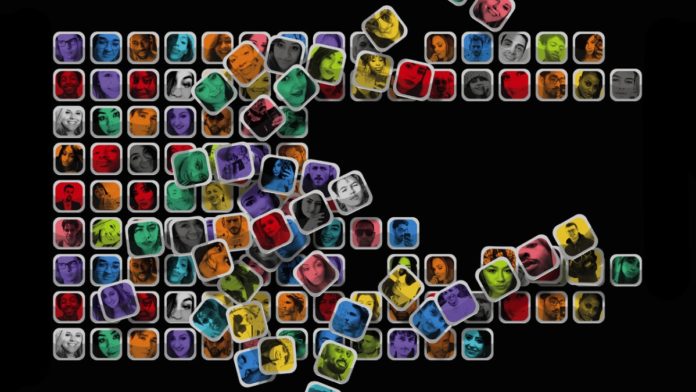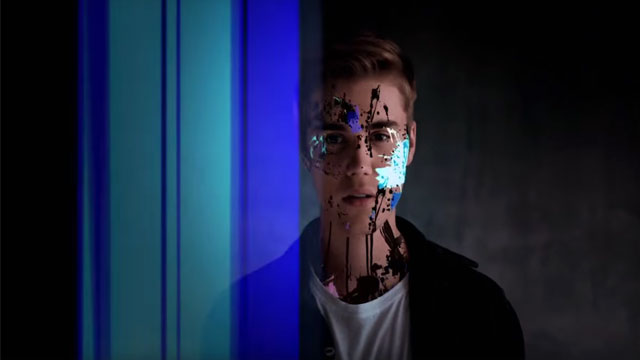An interesting look at how online dating has evolved to where it is now and what the implications are for it in the future are analyzed in the new documentary, “Swiped: Hooking up in the Digital Age,” which premiered on HBO on Sept. 10. One of the experts who is featured in the program is Whitney Wolfe Herd, Bumble’s co-founder and CEO. She brought a unique perspective to the show as she also co-founded Tinder before leaving that company amidst a sexual harassment lawsuit that was filed. The founding of Bumble followed.
The show looks at how easy dating has become nowadays with only needing to turn on the phone and, in some cases, swiping right, making a match and, soon thereafter, meeting up in a real-life situation. However, as is often the case when something appears to be so simple, there is much more to the situation as the repercussions of using these types of dating methods are analyzed. How do they affect the ability to find lasting and true connections? How have they changed dating today as compared to just a decade or two ago?
Whitney Wolfe Herd’s experiences with online dating apps dates to 2012, when she joined Tinder. Two years later, she brought her expertise to Bumble and has helped build that female-friendly app into a company that is now valued at more than $1 billion.
Interestingly, she initially had no interest in moving from Tinder to another dating app and was looking to start building a woman-only social networking app called Merci. However, Andrey Andreev, Badoo’s founder and CEO, met with Whitney Wolfe Herd and helped her realize that combining the idea behind Merci with a dating element could end up being a good decision. It was as it has grown tremendously in the relatively short time that it has been in existence, growing at a clip of 70 percent per year in recent years. In 2017, Bumble brought in $100 million in revenue.
One thing that makes Bumble unique and that has helped it grow so fast is that, in heterosexual matches, the first message can only be sent by the woman. It’s also known as a dating app that is focused on helping users find somebody who they want in their lives as boyfriends/girlfriends/wives/husbands as opposed to people who serve as short-term hookups. In fact, a recent survey discovered that 85 percent of Bumble users say that the intentions of entering into a relationship are exactly why they are using that app.
In “Swiped,” Whitney Wolfe Herd says that one of the benefits of Bumble’s women-first setup is that it flatters men, removing the initial rejection that they usually experience during first encounters with women, both online and offline. So having women be the ones who need to make the first contact between two matched heterosexual people provides more comfort for both as it also keeps women from having their inboxes inundated with initial messages from men, many of whom they have no interest in interacting with.
However, an opposing view is presented immediately afterwards, one in which it is proposed that Bumble’s originality is only keeping the status quo going, of women doing most of the work in regards to relationships since men now don’t even have to type any messages whatsoever in order to get a conversation going. But it should be pointed out that how Bumble works is a significant change from how Tinder and other dating apps work.
Additionally, so many women being more interested in, for example, Bumble over Tinder should be noted. It’s also becoming known as the dating app that is more focused on potential relationships than potential hookups. This is important because, in general, women are looking for relationships when using dating apps while men are on the lookout for hookups.
Bumble and Whitney Wolfe Herd have had a busy year with her being featured in “Swipe” only being the latest significant event to occur in 2018. One of those took place on March 16, when Match Group sued Bumble, filing a patent infringement lawsuit. Interestingly, it had come less than a year after Match Group had attempted to buy Bumble for $450 million before that request was turned down. Four days after the lawsuit was filed, Bumble publicly responded to it by placing a full-page ad in The New York Times and The Dallas Morning News, saying, in part, “We swipe left on your multiple attempts to … intimidate us. … We’ll never compromise our values.”
A move that Whitney Wolfe Herd and Bumble had made in March also made headlines. A few weeks after the school shooting in Parkland, Fla., the organization removed profile pictures that included guns with just a few exceptions such as those who are pictured with a gun while in uniform. The intent behind this change was to ensure that violence was not normalized by Bumble and that users did not feel threatened.
Twenty-four hours later, Bumble, which has a workforce that is 85 percent female, announced a partnership with the Los Angeles Clippers, a basketball team that is led by the NBA’s only female president. This marked the first time that a major professional sports team had partnered with a female-driven brand.
A major change was then announced in April, when it was revealed that linking a Facebook profile with a Bumble account was no longer required. This decision was made in the wake of the Cambridge Analytica data privacy scandal and the increasing hesitancy from people wanting to use the social media site, in connection with Bumble or otherwise.
One of the more recent moves that Bumble made occurred in August. At that time, the Bumble Fund was announced. This venture capital fund involved the dating app committing more than $1 million to it so that similar companies would be able to earn their own successes. Individual investments have and will continue to be made in amounts from $50,000-$250,000. The Bumble Fund was created in part because only 2 percent of venture capital dollars spent in 2017 went towards companies with female founders.
The main theme behind “Swiped” is not only looking at the past and present in relation to dating apps such as Bumble and how they are affecting lives and society as a whole but also what the future might bring for everybody involved with them. For example, is it the responsibility of dating apps to ensure the safety of users when they use what is offered to meet people in person? That is the question that both users and people overseeing the apps themselves are asking themselves now as a result.
Those interested in learning more about this are encouraged to read, “Tinder and the Dawn of the Dating Apocalypse,” a Vanity Fair article that was written in 2015 by Nancy Jo Sales, who is responsible for this documentary that focused on people from ages 18-29 who were engaged in online dating.







